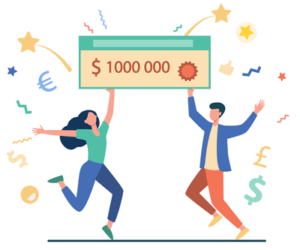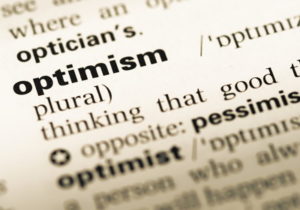 When it comes to betting and gambling, we’re all guilty of falling for asymmetrical outcomes. In essence, that is where the likely outcome is significantly greater than what we’re putting into it. In other words, there are situations where the potential upside or win far outweighs the potential downside or loss.
When it comes to betting and gambling, we’re all guilty of falling for asymmetrical outcomes. In essence, that is where the likely outcome is significantly greater than what we’re putting into it. In other words, there are situations where the potential upside or win far outweighs the potential downside or loss.
Whether it’s playing the lottery, chasing jackpots on slot machines or backing long shots in sporting events, individuals willingly participate in these activities despite facing unfavourable odds. If you’ve ever played the National Lottery, bought a EuroMillions ticket or backed a horse at 100/1 in the Grand National, you’ve fallen foul of the phenomenon.
One of the primary reasons people are drawn to asymmetric outcomes is the allure of big wins. The human mind is wired to seek out rewards and experiences that have the potential to significantly impact our lives.
The possibility of winning a large amount of money or achieving extraordinary success can be highly enticing. Even though the odds may be slim and often bad value, the thought of turning a small investment into a substantial return fuels people’s hopes and dreams. This is something that bookmakers and betting companies regularly take advantage of, much to our detriment.
Risk Perception & Psychological Factors
 To understand why people are more accepting of poor odds for larger rewards, it is important to examine the role of risk perception and various psychological factors.
To understand why people are more accepting of poor odds for larger rewards, it is important to examine the role of risk perception and various psychological factors.
Research suggests that individuals often overestimate their own chances of winning, leading them to downplay the risks involved. This cognitive bias, known as optimism bias, influences their decision-making process, as they believe that they have a higher probability of success than others.
On top of that, the framing effect plays a significant role in how people perceive risk. When presented with potential gains, individuals tend to take greater risks to maximise their chances of achieving those gains.
However, when confronted with potential losses, people tend to become more risk-averse. This asymmetry in risk perception explains why individuals are more willing to accept poor odds for large rewards, as the focus is primarily on the potential gains rather than the potential losses.
If you think of buying a lottery ticket, you don’t think of the cost or of what that money could be better spent on, but instead tend to focus on how amazing it would be if you were to win the jackpot and receive millions of pounds into your bank account, with the benefit far outweighing the possible negative.
Utility & The Evaluation Of Outcomes
 The concept of utility, or the subjective value individuals assign to outcomes, also contributes to the preference for asymmetric outcomes. When weighing the potential gains against the potential losses, individuals tend to assign higher utility to the larger rewards, even if the odds are unfavourable.
The concept of utility, or the subjective value individuals assign to outcomes, also contributes to the preference for asymmetric outcomes. When weighing the potential gains against the potential losses, individuals tend to assign higher utility to the larger rewards, even if the odds are unfavourable.
This evaluation is influenced by various factors, including personal values, aspirations and the perceived impact of the outcome on their lives. The prospect of achieving significant utility, such as financial security or social recognition, motivates individuals to take on the risk associated with asymmetric outcomes.
Imagine making a YouTube video explaining some topic that you’re interested in. The time, effort and money involved in that might be considered to be a -1 in terms of the utility of the action. Were you to gain millions of views, countless followers and a huge number of interactions, the outcome utility would likely be in the thousands, meaning that it outweighs the possible negatives.
Similarly, buying a lottery ticket might be -2 in terms of utility, but it could result in millions heading your way in a utility sense. By weighing things up in such a manner, we tend to justify poor decision making.
Exploitation by Betting Companies

Betting companies and gambling establishments are well aware of the allure of asymmetric outcomes and they strategically exploit this psychological inclination.
By offering enticing jackpots, grand prizes and long-shot bets, they create a perception of massive potential rewards that overshadow the poor odds. This marketing strategy taps into people’s desire to win large amounts and amplifies their willingness to participate, even if the chances of winning are minimal. You might know that you’re unlikely to win, but it’s sold as if you’ve got a good chance and we believe it.
In addition, the nature of gambling itself, with its unpredictability and element of chance, enhances the allure of asymmetric outcomes. The excitement and anticipation surrounding the possibility of a big win creates a sense of thrill and adventure, further driving individuals to engage in such activities.
We know from other articles on this site that look into betting psychology that people tend to enjoy the very act of betting, so companies do what they can to make it an appealing prospect rather than allow us the time to understand the truth of it all.
Social and Cultural Factors
 Beyond individual psychology, social and cultural factors also contribute to the fascination with asymmetric outcomes. In societies where wealth and success are highly valued, the allure of financial gains and recognition can be particularly strong.
Beyond individual psychology, social and cultural factors also contribute to the fascination with asymmetric outcomes. In societies where wealth and success are highly valued, the allure of financial gains and recognition can be particularly strong.
The media often highlights stories of overnight success, further fuelling the belief that anyone can achieve extraordinary wealth or fame through a stroke of luck. These narratives reinforce the idea that participating in activities with asymmetric outcomes is a viable pathway to achieving one’s dreams, which is why so many people play the lottery, for example.
Additionally, the sense of community and camaraderie associated with gambling can play a role. People often participate in group activities or office lottery pools, which foster a sense of shared excitement and anticipation.
The social aspect of gambling can create a sense of belonging and add an element of fun to the pursuit of asymmetric outcomes. It becomes not just about the potential monetary gains but also about the shared experience and the thrill of participating together. Even the likes of a roulette wheel can offer an enticement because of the shared nature of the experience.
Added to that is the fact that the normalisation of gambling within society contributes to the acceptance of poor odds for large rewards. Asymmetric outcomes are often portrayed as part of the gambling culture, with advertisements and media representations emphasising the possibility of hitting the jackpot.
This normalisation tends to desensitise individuals to the inherent risks involved and reinforces the notion that the potential rewards outweigh the slim chances of success. The allure of asymmetric outcomes, where the potential upside or win is much greater than the potential downside or loss, therefore captivates individuals across various gambling activities.
The fascination with big wins, coupled with cognitive biases, risk perception and the evaluation of utility, drives people to accept poor odds in pursuit of substantial rewards. Betting companies and the gambling industry then capitalise on this fascination, strategically promoting large prizes and exploiting psychological tendencies.
Understanding the psychology behind individuals’ preference for asymmetric outcomes is crucial for addressing issues related to excessive gambling and potential addiction. By recognising the impact of cognitive biases, risk perception and the allure of large rewards, we can take steps to provide healthier alternatives and promote responsible gambling practices.
